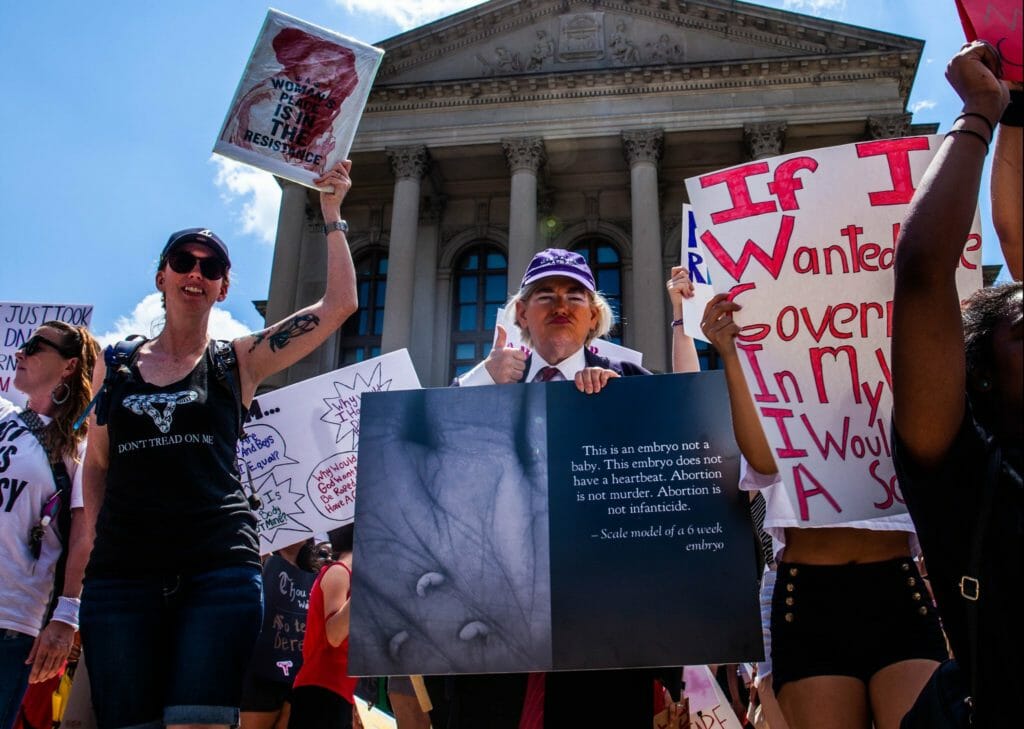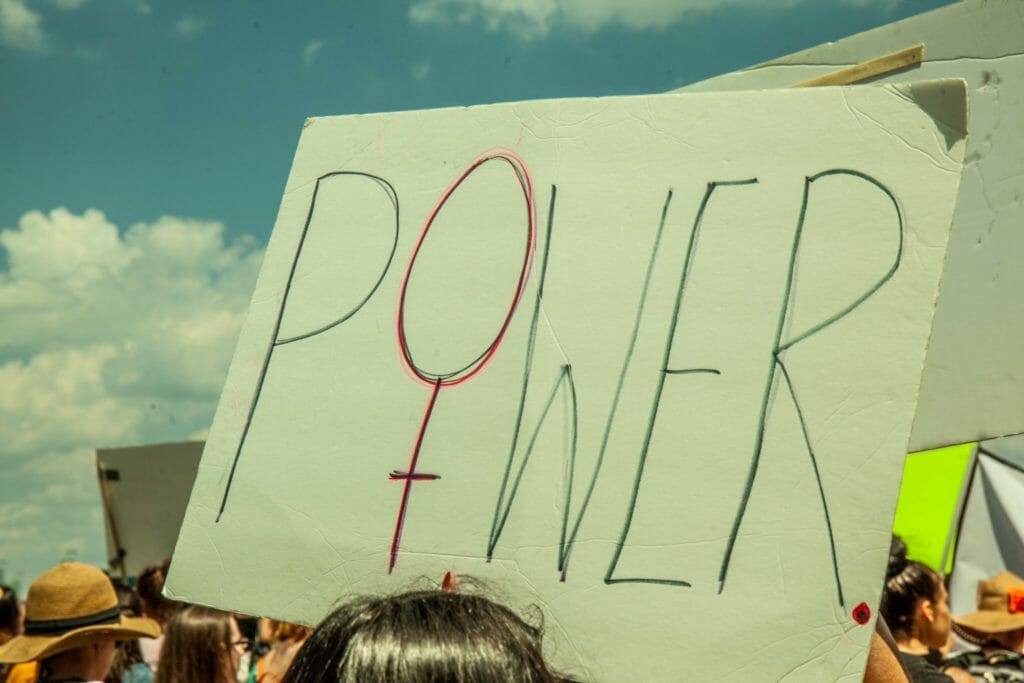ATLANTA — On July 6, 2020, Atlanta City Council held a listening session on the Rayshard Brooks Bill and Resolution 20-R-4068. The amendments, backed by Councilmember Antonio Brown and proposed by Councilmember Jennifer Ide, would put $73 million of the Atlanta Police Department’s budget into “The Public Safety and Community Support Restricted Fund” until Dec. 1, 2020.
During that time, the city in coordination with the Atlanta Police Department will attempt to make “systematic changes in police policies” and “reinvent the culture of policing” in the city of Atlanta. This day’s listening session was in contrast to a previous session on June 16, where residents of Atlanta called for city council to defund the police in an 11-hour long public listening session. This time, a wave of pro-police sentiments flooded the public comment line. Most voicemails came in the form of scripted phone calls. Some residents — mostly from District 8 or 9, which includes Buckhead and its neighboring area — thanked the eight council members who voted no on “defunding the police,” stood in support of the APD, and warned of what would be “declining property values” as well as businesses and their tax dollars leaving the city if the police were defunded.
Unfortunately, these sentiments not only came from a place of privilege, but also were incredibly misinformed. The resolution that was being presented — Resolution 20-R-4068, now known as the Rayshard Brooks Bill — is not a complete defunding of the APD, but a compromise in the form of money being withheld from the APD in a trust fund for less than five months. Despite this, other Atlanta residents continued to share their demands for the APD to be defunded and resources redirected to community services.
For Atlanta residents, it is important to know how the APD spends its budget and why defunding over reimagining is crucial. Councilmember Michael Julian Bond’s assertion on a Facebook post that a majority of the police budget goes to payroll and benefits is correct, but it is not totally free from scrutiny.
For the 2019 Fiscal Year (July 1, 2018 to June 30, 2019), the APD saw $198,276,772 of the $236,195,321 spent on what is categorized as Personnel Expenses. These expenses include salaries, pensions, defined contributions, overtime, and worker’s compensation for 2,583 Full-Time Equivalent employees. A question that needs to be brought to Councilmember Bond is how many of those 2,000 plus APD employees live in the city of Atlanta? How many are taking their tax-funded salaries outside 285 and reinvesting it into Gwinnett or Cobb or Clayton County and spending it in businesses and schools outside Atlanta? Meanwhile they continue to commute into and police a city they don’t live in to collect a paycheck. These are questions we need to ask because we are spending an awful lot of taxpayer dollars on an Atlanta cops salary and pensions, only for them to export it outside the perimeter.
The 2020 Fiscal Year budget saw personnel cost jump from a $198,276,772 expenditure in FY19 to a budgeted amount of $215,425,232, despite the APD seeing the loss of 210 full-time personnel. The 8% increase is in line with the promised pay hikes the city made in order to address attrition and difficulties in recruiting. The actual expenditure at the time of this publication is unknown, but will be revealed when the approved 2021 budget is released to the public by the City of Atlanta.
(Source: City of Atlanta FY2021 Proposed Budget)
There are two troubling things regarding the personnel costs on the city budget for the 2021 Fiscal Year. One is the $20,841,292 going into undefined Other Personnel Costs, and the lack of transparency regarding how APD uses this money.
Why did other personnel costs receive a budget increase of close to $8,000,000 in FY20? Even with a budget cut going into FY21, the APD still has $20,624,557 allotted to whatever “other personnel costs” are. Secondly, the APD spent $17,040,643 on Overtime in FY19, despite an accepted overtime budget from the City Council of $9,128,504. Of that overtime cost, $11,468,452 came out of the city’s General Fund, or revenue from local taxes (property, sales, payroll, and other). An additional $2,062,027 in overtime expenditures came from money collected from 911 fees that can be found on your phone bill.
(Source: Data pulled from City of Atlanta FY2021 Proposed Budget)
While dollars spent on overtime have decreased over three fiscal years, outside of the Department of Watershed Management, the APD has accounted for close to half of the city’s allotted overtime budget. What makes these overtime expenditures and budgets troubling is APD officers’ history of abusing overtime policies.
In 2018, the City of Atlanta completed an audit on overtime expenditures across all city departments. The audit found that the police department accounted for 43% of overtime in 2018. Five other departments, including fire, watershed management, public works, corrections, and aviation, accounted for 55% of overtime expenses. Additionally, city auditors reported that “the Atlanta Police Department paid employees more generous overtime rates than the Fair Labor Standards Act (FLSA) requires.” The statement goes on to say that the “department pays some officers overtime rates after working 160 hours, rather than after the 171-hour threshold established by the FLSA. The department also allows leave time to count toward hours worked to reach the overtime threshold. According to the law department, these practices do not violate the FLSA, but counting paid leave toward the overtime threshold is improper according to city code and departmental standard operating procedures.”
Overtime pay by the APD at the expense of Atlanta taxpayers was so rampant that a special unit was formed in July 2018. The audit recommended that then-Chief Erika Shields enforce the FLSA and city policies regarding sworn officers and premium overtime. This included addressing leave time taken as counting towards overtime pay for sworn officers. The response was to form the Centralized Overtime Tracking Unit (COTU) in order to track overtime expenses.
The APD saw a 217% increase in overtime expenses from FY13 to FY18, reaching $24,225,602 in FY18. Over 60% of police sergeants earned overtime amounts that exceeded 15% of their base annual salaries. The APD even stated “schedules change daily, for example: attending court, staying late for a 911 call, SWAT callbacks, special crime-fighting details, and major crime investigations. For non-exempt employees, a set schedule is impractical as it requires too many adjustments.”
While that might be true, police departments are a prime environment of officers gaming the system to clock in more overtime. In effect, what we see oftentimes are situations where a disproportionate amount of targeted policing can occur towards the end of a police officer’s shift in order to increase overtime pay.
After the formulation of COTU and the implementation of what the audit describes as a “secondary tracking system,” APD saw a reduction of overtime spending that reached 60% from July 2018 to December 2018. Despite that reduction, the APD has continued to blow past its allotted overtime budget while accounting for almost half of the city’s overtime budget. This is due to a policy noted in the audit that states a sworn employee must meet a minimum of “one proactive active action per hour of overtime worked.” These actions include:
- Field interview
- Traffic stop
- Traffic citation
- Parking ticket
- Directed patrol (with the prior approved plan of action or an emergency situation)
- Calls for service (if assigned to a beat car or umbrella car)
- Vehicle impound
- Vehicle recovery
- Physical arrest
- Copy of charges (arrests)
The city overtime audit concluded the following: “The use of a secondary tracking system may add risk to overtime accountability. Police department staff are recording overtime hours in a database to track compliance with the new productivity requirements. While we commend the department’s efforts to better manage overtime, tracking hours outside of the city’s timekeeping system may make it difficult to ensure accuracy. The department’s policy requires the tracking unit to review accumulated overtime hour totals from the Kronos and Oracle systems.”
Atlanta’s non-salary expenditures are available through Atlanta’s Open Checkbook, a service started by Mayor Bottoms granting taxpayers the “access and ability to see and track how their money is being spent.”
In FY20, the APD accounted for the fifth-highest expenditure of any city department. When it comes to the percentage of expenditures coming from the general fund, APD accounts for 17% of non-salary related expenditures in the city, the second-highest department in the city. What is concerning about going through APD’s “checkbook” is the lack of transparency regarding what the checks are actually used for.
For example, in FY2019, a $451,620.54 check was made out to George State University with no mention of what it is for. While it could just be community outreach, we have to remember that GSU is the main sponsor of the Georgia International Law Enforcement Exchange. In a survey given to 2017 Atlanta mayoral candidates by the Council on American-Islamic Relations, Mayor Bottoms indicated she would temporarily freeze the GILEE program, as of this date no indication of a freeze has occurred, and the APD is still listed as a partner alongside the Ferguson, Philadelphia, and New York Police Departments. This program sends senior APD officers overseas to train with foreign government agencies such as the Israeli Defense Force, bringing over the same policing techniques and systems used to brutalize Muslims from Palestine to China under the guise of urban policing and counterterrorism.
Atlanta protesters saw the same tactics used in the West Bank firsthand with reports of kettling and police officers in riot gear throwing flashbangs and deploying tear gas across Atlanta. We can see the parallels between the IDF and the APD, with APD officers hugging and joining protesters in a display to appear empathetic and just, and then physically assaulting them in excessive displays of force all in one night.
Further, policing in the form of surveillance is being brought from places like Shanghai to Atlanta. Over the course of three years, $3,045,476.97 of payments were made to GC&E Systems Group, a security systems supplier that specializes in high-tech IT security and video surveillance. It is safe to assume that not all of the $3 million-plus dollars goes into video surveillance. On the other hand, it is hard to trust a department that is working with the perception that they are an essential service above the city; a department that would rather call in sick after one of their own was held accountable instead of doing their jobs better.
Meanwhile, the common cop culture of self-victimization, rewarding self-interest, and protecting those who bring violence to those in the community perpetuates. As it stands, Atlanta is one of the top 10 most surveilled cities in the world, the other eight are in China, with 15.56 cameras per 1,000 people in a 70% BIPOC city.
(Source: Atlanta’s Open Checkbook)
Another major vendor that receives a large portion of taxpayer dollars is Axon Enterprise, a major supplier of tasers and body cameras. Axon Enterprise received a little over $6 million dollars from the APD’s general fund in 2020, and over $9 million dollars spent with Axon in the three years the Atlanta’s Open Checkbook has existed.
Even with the $9 million dollars spent on “less than lethal” weapons like tasers and tools like body cameras, we still have instances of Rayshard Brooks being tasered and eventually shot in the back and people like Oscar Cain being murdered by an APD officer who didn’t bother to switch on their body cameras. A December 2018 city audit even addresses the fact that APD officers were statistically less likely to either have the body camera on or have the body camera shut off prematurely during a call.
It begs us to raise the question, why do we keep spending money on programs that can’t keep people safe? Why not redirect these expenditures to somewhere else in need? Taxpayers funded expenditures such as $1.7 million dollars on bullets and ammunition alone over the past three years, including more than $680,000 in 2020. Comparatively, Atlanta Public Schools typically receive more than $20,000,000 in funding from the United States Department of Agriculture on school nutrition, but student lunch debt remained prevalent in the city until a bill was passed that at the federal level that provides all breakfasts and lunch to APS students for free. Something as simple as eradicating public school student lunch debt could have been done by simply cutting some portion of the APD’s bullets and ammo expenditure.
Outside of money from the city, the APD also receives additional financial assistance from a non-profit known as the Atlanta Police Foundation, which was responsible for providing the $500 bonus check to all APD officers. These foundations work symbiotically with the APD’s union, the International Brotherhood of Police Officers Local 632. With no contract with the city of Atlanta and the APD that could dictate policies such as disciplinary actions towards killer cops, the IBPO Local 632’s role is to collectively bargain with the city on behalf of the APD with regards to salary and benefits. The APF has stepped in to support the union’s push to receive higher salary for APD cops. On top of this, the APF has helped the city run it’s Crime Stoppers program, as well as facilitating the launch of Operation Shield.
In broad terms, Operation Shield was a privately supported expansion of the APD’s technical capabilities. It included an upgrade to radio communication systems between security guards and police officers in the city, as well as a network of 10,000 surveillance cameras. The goal of this initiative was to “create more efficient policing including the citywide network of surveillance cameras and license plate readers, predictive policing platform and criminal analytics software.”
These foundations are not unique to Atlanta. All across major metropolitan cities have one, from Louisville to New York to Los Angeles. What makes them troubling is when these foundations act as a secondary means of funding from wealthy portions of the city, in essence becoming a second piggy bank for police departments funded by the rich. Corporate-sponsored events such as the Crime is Toast dinner allow sponsors like Delta, Equifax, the Arthur Blank Foundation, Ernst & Young, Colliers International, and even Waffle House to essentially “buy a seat at the table” with the city police chief, all for the price of a $25,000 donation.
As it stands, Mayor Bottoms and members of the city council have argued for an increase in cops, and an increase in their salaries. Under Chief Shields, who resigned from her position the day after Rayshard Brooks was killed by then-Officer Garrett Rolfe, the APD was considered one of the more progressive departments in the country. Department initiatives such as building a rapport with repeat offenders and a no-chase policy were cited as a reimagination of policing in the name of public safety.
Despite this, the APD continues to fail citizens of this city, especially Black and Brown folx and in regards to crime prevention. Their claim is a lack of personnel, despite the department maintaining levels at 2,300 or higher since Mayor Bottoms was elected. But with a crime rate remaining flat with no major changes in either direction, we have to ask if more cops are the solution. At what point do we in this city (except for Buckhead apparently) dare to reimagine how our community interacts with each other and how we prevent crime in the first place? Why are certain city officials insisting on giving a police department that has killed Black people at a rate 8.8 times higher than the white population of the city in the past six years more money?
Giving more money to a police department that has exported tactics influenced by the Israeli Defense Force to keep Palestinians subjugated and brutalized into the City of Atlanta will only continue to harm our Black and Brown communities. The calls for defunding and abolition are even more urgent when experts have found that households and communities with little resources, living especially in conditions of poverty, are more likely to be victims of violent crime.
A lot of people in Atlanta have dared to imagine their city without police; their demands of disinvestment and redistribution have been channeled into 11-hour long public listening sessions, as well as sustained protests for the past 43 days. Redistributing APD funds into other areas of the city such as Atlanta Public Schools, who are facing budget cuts due to statewide cutbacks, or underfunded departments such as Parks and Recreation or the Citizens Review Board is crucial when it comes to our vulnerable and under resourced communities. The Rayshard Brooks Bill and Resolution 20-R-4068 can be the start in a long journey for the city of Atlanta.




